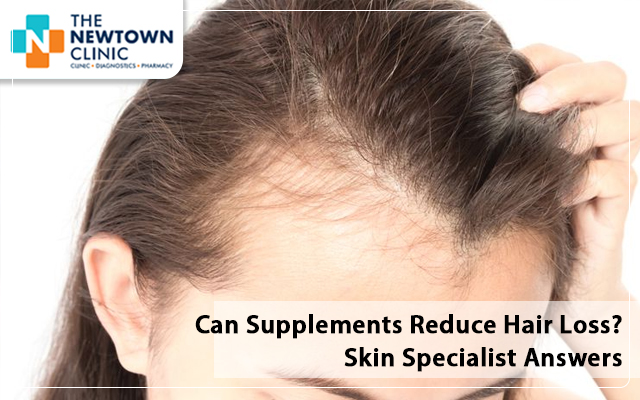Introduction
According to a dermatologist in Salt Lake, a person’s diet significantly impacts the quality of their hair and causes problems such as hair loss. Several factors, including nutritional deficiency, can cause hair loss.
Supplements can be an effective solution to hair loss; however, they may not always work. To understand the role of supplements in addressing hair loss, it is essential first to find out how nutritional deficiencies can cause the problem.
Nutritional Deficiencies and Hair Loss
Our hair is one of the fastest-growing parts of our body. Therefore, it requires a steady supply of nutrients, including biotin, folic acid, ferritin (iron), zinc and vitamins A, C and D.
According to a skin specialist in Kolkata, when people do not get enough essential nutrients, their hair can become unhealthy. A bad diet can make hair feel drier and less shiny.
In some cases, insufficient minerals like iron and other nutrients can cause hair thinning. Iron facilitates haemoglobin production, which helps deliver nutrients and oxygen to hair follicles. Therefore, without enough iron, haemoglobin production will reduce and the hair follicles will not receive adequate nutrients to grow, causing hair thinning.
Will Supplements Help with Hair Loss?
Generally, people’s diet consists of the said nutrients and their hair loss is unlikely to be due to nutritional deficiency. Therefore, hair loss is often linked to changing hormone levels, autoimmune disorders and other issues such as skin conditions. Supplements are not likely to help in these cases, says a Newtown Clinic’s best skin doctor in Salt Lake.
Upon visiting a dermatologist, a person will be asked about his or her diet and the doctor might recommend a blood test to examine nutritional deficiency.
If the tests reveal nutritional deficiency, a dermatologist in Salt Lake will recommend changing eating habits. Dietary supplements may also be prescribed to ensure the supply of missing nutrients. Supplements can be effective for hair loss caused by a nutritional deficiency. Having healthier hair can reduce the impact of a person’s hair loss and increase the chance of success of other hair loss treatments.
It is best to follow a balanced diet to get the necessary nutrients rather than relying on supplements in the long run. However, according to a skin specialist in Newtown, supplements can help if a person has a restricted diet or a disease that makes it hard for his or her body to absorb essential nutrients.
If you experience hair loss or have recently noticed a deterioration of the quality of your hair, book an appointment with a dermatologist at Newtown Clinic.

